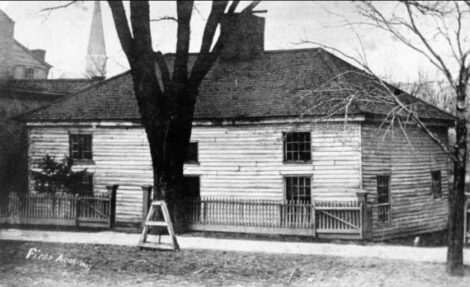So, what happens if I don’t vote?
“It doesn’t matter anyway”, “What’s one Vote?”. These comments are often heard from people who choose not to vote. The idea that one vote can’t possibly have an effect is a common misconception. In fact, throughout our history, there have been very close votes that made the difference in the direction taken by America. In 1876, Rutherford B. Hayes lost the popular vote, but won the electoral college by a single vote. In 1960, JFK won the popular vote by less than 120,000 out of 68.8 million votes cast. In 2000, the Al Gore and George Bush race was determined an even race and had to be decided by the Supreme Court. “One of every 100,000 votes cast in U.S. elections, and one of every 15,000 votes cast in state elections, “mattered” in the sense that they were cast for a candidate that officially tied or won by one vote.” (Mulligan, C.; Hunter, C. (2003). Depending on the state, 1 in 500 elections is decided by less than 1 vote in 1,000. It happens frequently in state elections. In 2008, Mike Kelly defeated Karl Kassel for a seat in Alaska by one vote. In 2010, Peter Durant won the Massachusetts House of Representatives by 1 vote. In 2017, 3 seats in the Colorado legislation were won by 1 vote. Close local races prompted Frank LaRose, Ohio Secretary of State, to make this comment about local races, “In November (2022), eighteen different local races in eighteen different counties ended in a tie, and any single, solitary voter would have made the difference in the outcome… These election results are proof positive that your vote matters.” Low voting can have disastrous effects on our governance. Because of the low Democrat turn- out in 2022, George Santos, US Representative for NY 3rd district won the seat and then was charged with 23 fraud accounts and expelled from Congress. In recent history, voting participation has peaked during presidential elections, but those numbers trail off during non-presidential years and in primary races. Only three of 10 voters participated in presidential primaries this year (NPR). Low voter turnout has several negative consequences for a democracy, such as an unrepresentative government, decreased legitimacy, and marginalization of minority groups. When a significant portion of the population abstains from voting, the elected government may not accurately represent the will and preferences of the people. Low voter turnout can also undermine the legitimacy of the government. Low support can make it more challenging for elected officials to implement policy changes and govern effectively.
Participating in elections is one of the key freedoms of American life. It is the only way in a Representative Democracy to ensure each voter’s voice has meaning. The need to reach youthful voters is vital. As the campaign season for the 2024 election gets into full swing, many young voters — meaning people under 30 — say they’re disillusioned with politics and plan to sit out. This needs to change. This year, eligible voters under 30 are going to make up about half the voter population (NPR). They could make or break a candidate’s future.
It will take efforts by several groups to encourage voter turnout. This will include non-partisan groups to educate, the government to craft enabling voting policies, and the private sector to encourage employees to exercise their voting rights.
So what happens when I don’t vote? Staying on the sidelines is disempowering; voting is empowering. It is one of the most impactful things a citizen can do. Democracy is government for and by the people, and the vote is basic to giving people the power to control their government and to shape policies. Each citizen needs to reclaim that power.
Joy Cowdery, member of Living Democracy: Engaging Citizens a local citizen group. Our mission is to inform and educate the Mid-Ohio Valley about how government works on the local, state and federal levels and how citizens can be involved to make our democracy work.
Join us the third Wed. of each month. livingdemocracymov@gmail.com and facebook/speakforyourselfvote and Youtube channel Living Democracy

